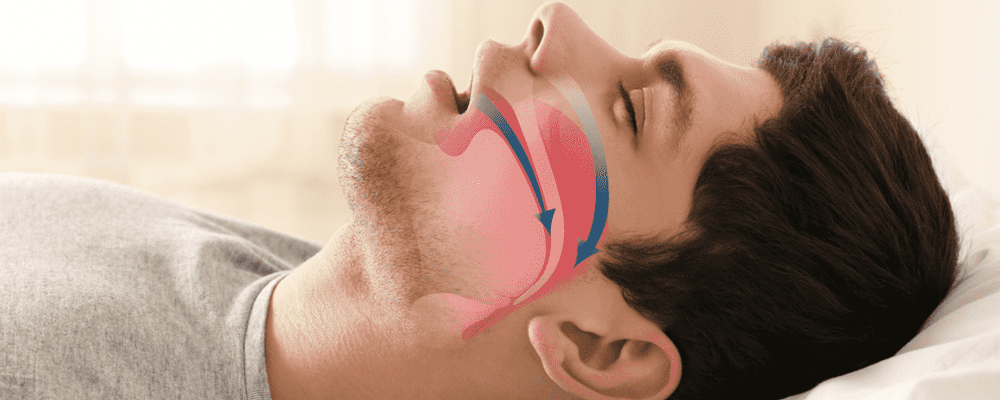
Obstructive Sleep Apnea: Disrupted Sleep, Increased Health Risks
Obstructive sleep apnea (OSA) is a serious sleep disorder affecting millions of people worldwide. Most often associated with snoring, it disrupts your normal breathing patterns during sleep when the muscles in your tongue and throat relax, causing a blockage in your upper airway. This blockage leads to episodes of apnea, which are pauses in breathing that can last anywhere from a few seconds to a minute and occur dozens of times per night.
During these apneas, your brain and body are deprived of oxygen, which can lead to a variety of health problems. The consequences of undiagnosed obstructive sleep apnea can be severe, including:
High Blood Pressure: The body responds to the lack of oxygen by releasing stress hormones, which can increase blood pressure and strain your cardiovascular system.
Stroke and Heart Attack: Chronically high blood pressure and oxygen deprivation put you at a greater risk for stroke and heart attack.
Type II Diabetes: Obstructive sleep apnea affects blood sugar by depriving the body of oxygen, triggering the release of stress hormones that can impair insulin sensitivity, and contributing to low-grade inflammation in the body. All of this can increase the rise of Type II Diabetes.
Common Signs of Obstructive Sleep Apnea:
Loud Snoring: While not everyone who snores has sleep apnea, very loud and frequent snoring can be a sign. In OSA, the snoring might be interrupted by periods of silence when breathing stops.
Excessive Fatigue: This is a feeling of sleepiness or fatigue throughout the day, even after a full night’s sleep. People with OSA might struggle to stay awake during work, school, or even while driving.
Difficulty Concentrating: Fragmented sleep due to sleep apnea can lead to problems focusing and paying attention during the day. You might experience forgetfulness, difficulty learning new things, or making mistakes at work.
Headaches: Waking up with headaches can be a sign of sleep apnea, as your brain wasn’t properly oxygenated during the night. These headaches often go away within a few hours of waking.
Mood Changes: Irritability, anxiety, and depression are all potential symptoms of sleep apnea due to chronic sleep deprivation. You might feel short-tempered, easily frustrated, or have difficulty managing emotions.
Restless Sleep: You might wake up frequently during the night without fully remembering it, but feel unrested in the morning. This fragmented sleep can leave you feeling tired even though you spent time in bed.
Dry mouth or sore throat Dryness can occur because you’re breathing more through your mouth at night due to a blocked airway.
Difficulty controlling weight: While not always the case, some people with sleep apnea experience weight gain or difficulty losing weight due to hormonal changes and disrupted metabolism.
Sleep breathing disorders and TMJ disorders (and PTSD, anxiety, and depression)
A high percentage of our TMJ disorder patients who are referred to our practice have oral, dental, and throat Signs along with Medical Symptoms that are found in patients who also have a sleep breathing disorder, like Obstructive Sleep Apnea. OSA is just one of over 80 sleep disorders, therefore, our office strongly encourages the patient, to either use a home sleep test (Dr Welch recommends a two-night HOME sleep study) and/or an in-lab Polysomnogram (PSG) to rule out an SBD before beginning any TMJ disorder therapeutics.
Beyond CPAP: Alternative Treatments for OSA
The traditional treatment for obstructive sleep apnea has been a Continuous Positive Airway Pressure (CPAP) machine. This device uses a mask to deliver pressurized air to keep your airway open throughout the night. While effective, CPAP machines can be cumbersome and disruptive to sleep. The constant air pressure can be noisy and uncomfortable, and the bulky mask can make it difficult to sleep in a natural position. Many people struggle to tolerate CPAP therapy, leading to poor compliance and continued health risks.
Oral Appliance Therapy: A Comfortable and Effective Option
Fortunately, there are alternative treatment options available for obstructive sleep apnea sufferers. Dentists can offer oral appliance therapy – a sleep apnea mouth guard – a minimally invasive and comfortable approach that uses a custom-made mouthpiece to gently hold your jaw in a slightly forward position. This forward position helps keep your airway open during sleep, preventing apneas, decreasing snoring, and improving your overall sleep quality.
Sleep apnea mouth guards are typically much more comfortable and user-friendly than CPAP machines. They are quiet, compact, and easy to travel with. Studies have shown that oral appliance therapy and sleep apnea mouth guards can be just as effective as CPAP for mild to moderate OSA cases, and many patients find it to be a more sustainable and tolerable treatment option.
Seeking Help for Sleep Apnea
If you suspect you might have obstructive sleep apnea, talk to your doctor about holistic dental services. They can perform a sleep study to diagnose the condition and determine the best course of treatment for you. If OSA is diagnosed, a dentist with expertise in sleep apnea and holistic dental services can create a customized oral appliance to help you breathe easier and sleep better. By addressing snoring and sleep apnea, you can improve your overall health and well-being, reduce your risk of serious health complications, and wake up feeling refreshed and energized each day.